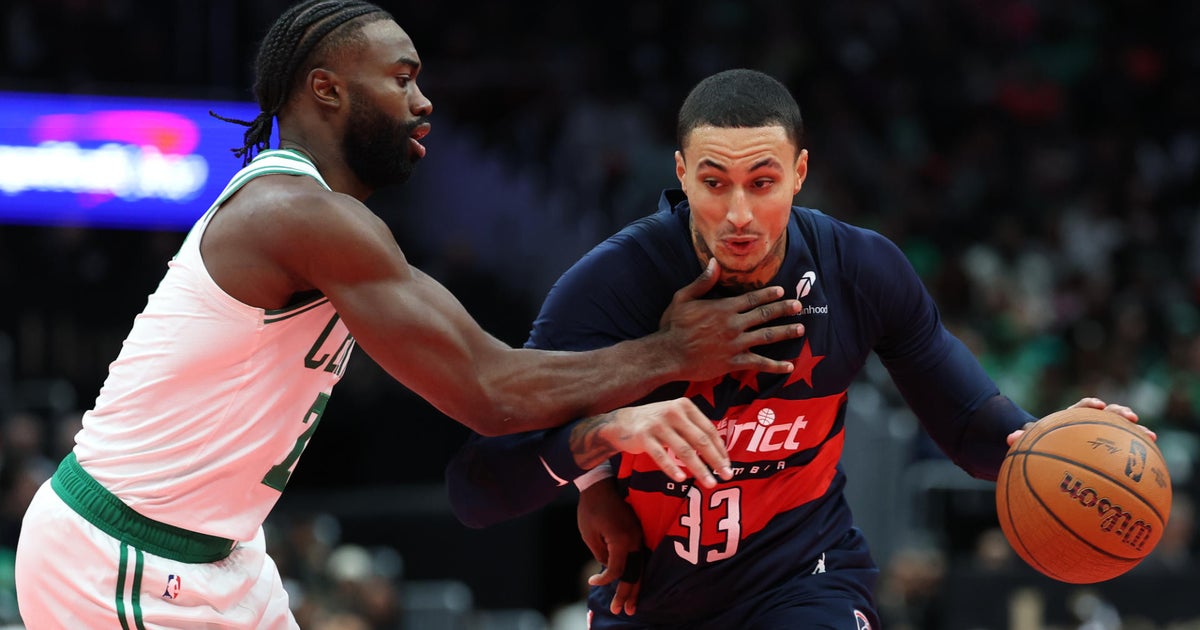Instant Replay Key Player in Finals

The ball bounces out of bounds. Players immediately point in opposite directions. Coaches leap to their feet and scream at the officials.
The referee makes the call, but isn't certain.
Time to go to the videotape.
The league's expansion of instant replay to include out of bounds calls in the final minutes has played a role in these NBA finals, where the Los Angeles Lakers brought a 2-1 lead over the Boston Celtics into Game 4 on Thursday night.
The referees went to the monitor three times near the end of Game 3, three chances for better looks at the kinds of close calls that can swing series.
"Certainly the replay system worked in terms of being able to review some of our most crucial possessions at the end of the game," said Stu Jackson, the league's executive vice president of basketball operations.
Yet, one of those reviews opened the debate about whether the replay system needed further tweaking. The NBA already has those discussions.
"We're going to keep striving to balance the desire and need to get it right with the fact that we are a 2 1/2-hour game heading to 4 if we have too much replay," commissioner David Stern said.
But the league already believes this: A little more than a week after baseball faced cries to add more review after an incorrect call cost Detroit pitcher Armando Galarraga a perfect game, instant replay is the way to go.
"We believe that," Jackson said, "because we feel our system is understandable, it's narrow, it's being administered by the officials with minimal interruption of the game, and I think fans understand it."
The NBA instituted instant replay before the start of the 2002-03 season, originally to review period-ending baskets and fouls, and a number of triggers have since been added.
Replay is used for officials to confirm a flagrant foul warranted an ejection, or that players left the bench during an altercation. Referees can now go to the monitor to see if shots or fouls came beyond the 3-point arc, whether they beat the shot clock, or if there was a clock malfunction.
The system was expanded this season to out of bounds possessions in the 2 minutes of regulation or overtime. That's the one that came into play three times in the final 1:29 Tuesday. The first two calls were overturned, the third was confirmed.
However, replays of that play, with 39 seconds remaining, showed Celtics point guard Rajon Rondo grabbing Lakers forward Lamar Odom's arm. But the officials hadn't called a foul, so they weren't allowed to after seeing the tape.
Lakers coach Phil Jackson said that's a problem with the replay system.
"Those are the things that we questioned immediately when they brought in the rule," Jackson said. "You're going to see a lot of things happening now on this type of thing where if it's a three-point play, a guy might have stepped out of bounds and no one saw it, and he comes back in. Now you're looking at is it a 3-point shot or not, and you miss the fact that he stepped out of bounds. What are you going to do to rectify the fact the officials missed a call?"
For now, nothing.
Stu Jackson said using replay to retroactively call fouls would be a "slippery slope."
"If we begin to get into an area where we start to review foul calls, you get into a situation where, which calls do you review?" he said. "How many of them do you review? Do you review at certain parts of the game, the entire game? Now you start to effectively infringe upon the look of the game and the timing of the game, and we want to avoid that as much as possible."
Still, replay will continue to grow next season, when officials can use the monitor for those tough possession calls during the entire overtime.
And there is now a seven-member instant replay committee evaluating the system and studying ways to further incorporate review into the league. So expect to see more finals games have their instant replay moments - as long as it doesn't slow things down.
"We are actively or aggressively looking for ways to include instant replay," Stu Jackson said, "but we've done so over the past eight years at a steady pace and with caution as to protect the game."
© 2010 The Associated Press. All rights reserved. This material may not be published, broadcast, rewritten or redistributed. Learn more about our Privacy Policy and Terms of Use.



